If you think about it, Japan is almost the perfect setting for zombie fiction: densely populated cities, sprawling subway system, small island nation—add a zombie outbreak and I'd watch that movie. However, nine times out of ten in Japanese zombie movies, instead of seeing a slow, deliberate, creepy film where the shambling hordes of the undead shuffle through crowded Tokyo subways spreading their deadly plague, you often get this:
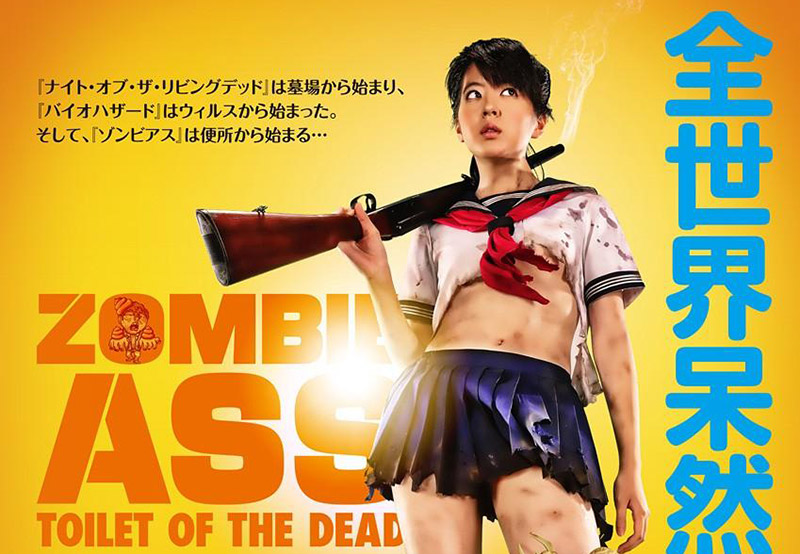
or else you get this:
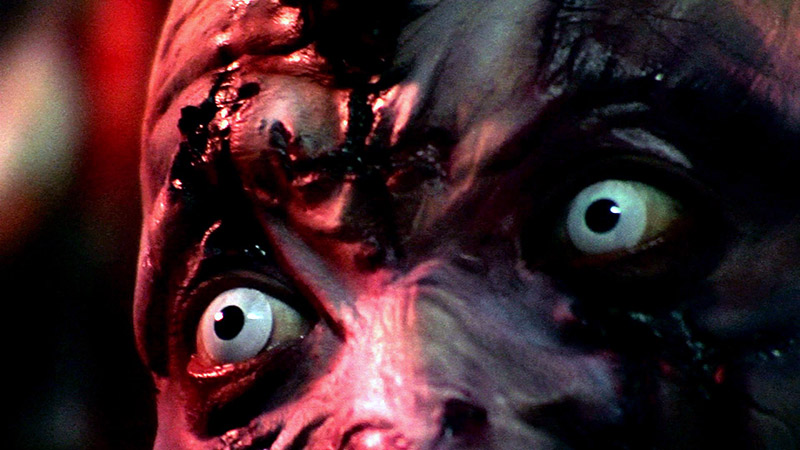
Japanese zombie films are almost exclusively horror comedies and typically come in two flavors: zombie movies with farcical comedy elements built into the plot, or zombie kung-fu movies with farcical comedy elements built into the plot (With movies like "Versus", "Wild Zero", and "Zombie Self Defense Force", this is apparently a thriving genre in Japan) . Both are executed with tongue-firmly-in-cheek and very thick layers of camp.
If the zombies aren't playing an over-the-top game of kung-fu baseball against our protagonists, like in "Battlefield Baseball,"
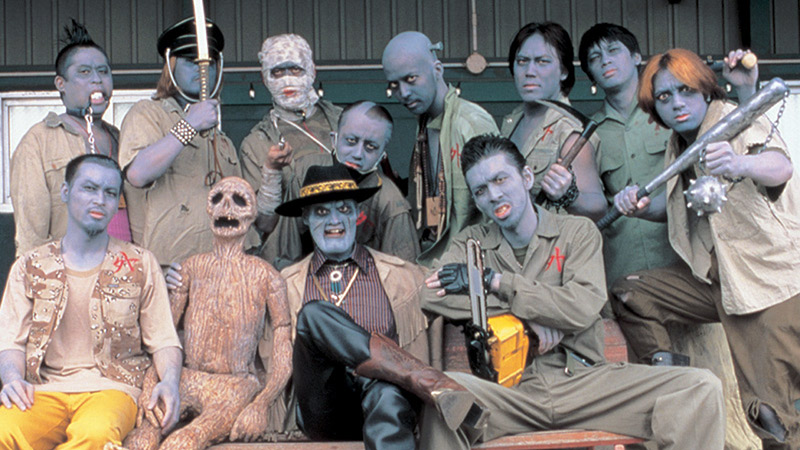
Then they are the background of a romantic-horror-comedy with the main character's impending zombification as the crux of the plot, like "Life is Dead." Let's not fail to mention that he contracted the virus by having sexual intercourse with a zombie prostitute.
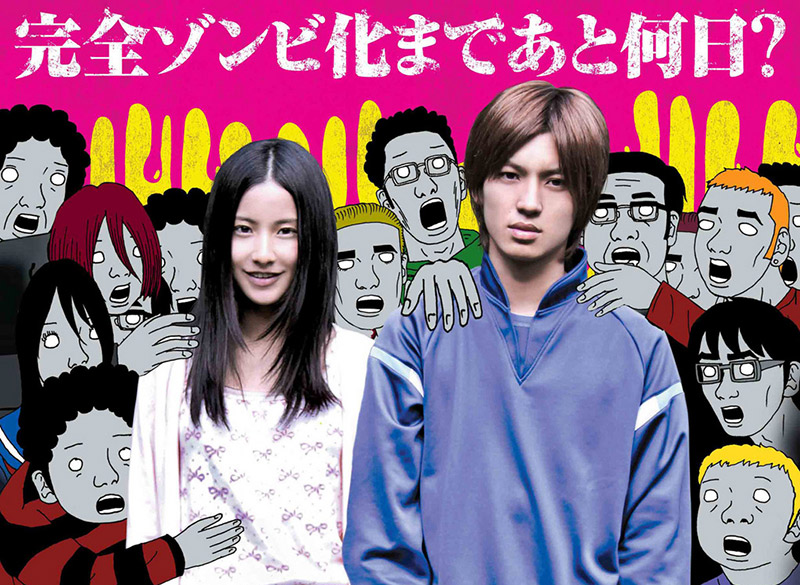
Zombies are parodied further in manga like "Kore wa Zombi Desu Ka" and "Tokyo Zombie." The latter also got a movie treatment featuring two friends who are factory workers and, of course, martial arts masters squaring off against legions of the undead in a zombie kung-fu horror comedy (Jeez, they really are THAT popular).
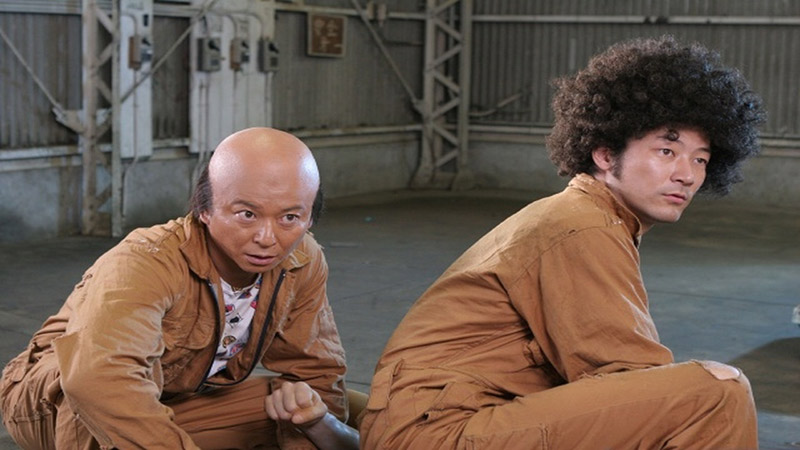
There are even movies that push the horror elements fairly well but still seem overly interested with parodying the genre, making jokes, and having creepy comedy elements. A good example of this is "Stacy: Attack of the Schoolgirl Zombies." The title and many of the visuals are used for cheap shock value, with over-the-top gore and wacky sight gags aplenty. The filmmakers also keep up a near constant barrage of self-aware references to pioneers of the modern zombie film like George Romero and Sam Raimi.
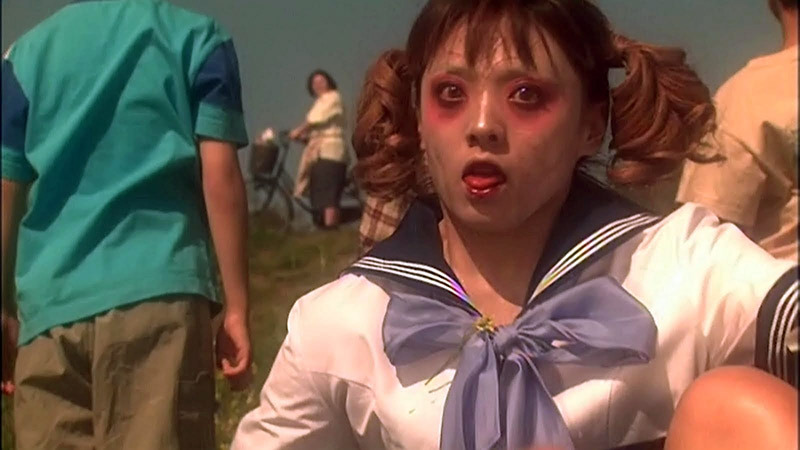
Why are zombies so often seen as clowns in Japanese media? Despite the fact that a zombie clown could actually be a very scary prospect, the tendency in Japanese media is to use zombies for comedic relief instead of pants-wetting horror. While a lot of this comes from the subversive nature of Japanese cinema, there are a couple of cultural theories that could help to explain this:
Why Zombies DON'T Scare Japanese People
They're Foreign
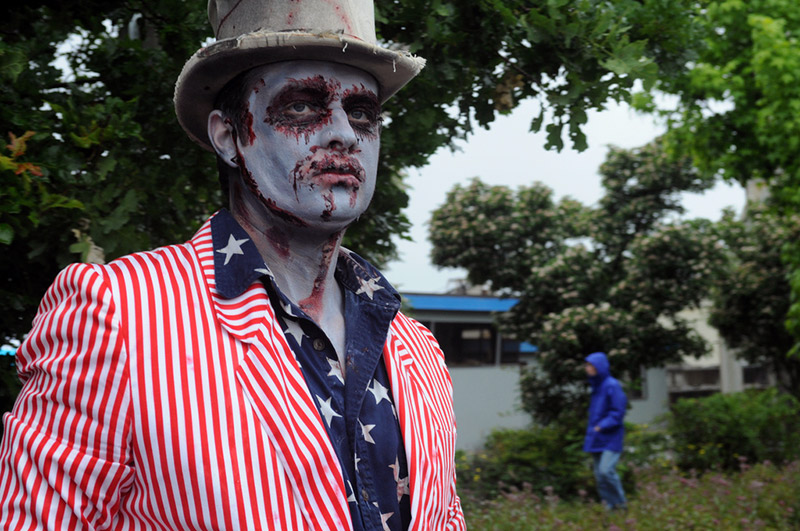
Just like vampires, werewolves, and several other horror beasties, the zombie is not native to Japan. Japanese interactions with the undead are limited to spirits, certain yokai, and sometimes the Chinese Jiangshi (hopping corpse). After the zombie boom of the 1990s, which followed the popularity of the Romero movies, Zombies began to get more international appeal and Japan got on board the zombie train.
However, the foreign-ness of zombies never seems to leave the Japanese consciousness when they are making zombie media. It's similar to American-made ninja or kaijuu movies— very similar if you consider how ridiculous some American ninja movies are. For this reason, invoking zombies in a Japanese movie is often considered referential of Western pop culture and because of that is often approached from a more ironic or humorous angle. This is perhaps why, when Japanese creators tackle the subject matter in a more straightforward and less subversive way, such as in "Dead Rising," "House of the Dead" or the "Resident Evil/Biohazard" games, they are always set in the Western world and not in Japan.
They're Not Ghosts
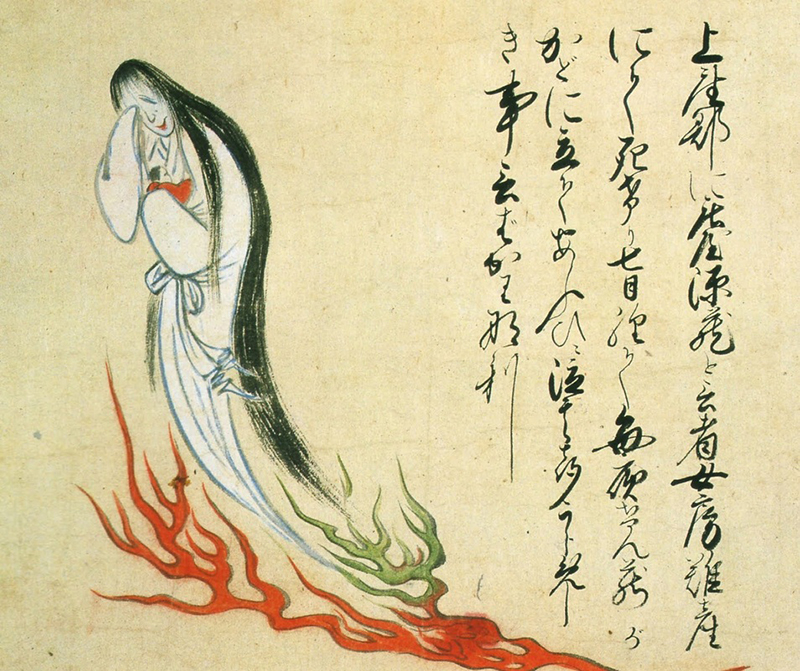
Historically, ghosts have captured the imaginations and fears of Japanese people far more than any promise of the corporeal undead ever has. There are a handful of reasons for this. Firstly, the Japanese traditionally cremate their deceased. Because of this, the iconic imagery of zombies rising from the grave is not only culturally disconnected from the mainstream its also completely impossible to depict realistically in Japan. Second, there is a rich history surrounding the existence of ghosts and spirits in Japan where zombies are not only the new kids on the block, but they are also seen as more outlandish and, as such, carry less weight in a horror movie. If the movie is meant to scare you, Japanese film might lean in the direction of a ghost story before using something with a physical body. Zombies just don't have the same creep factor as a ghostly hand on your shoulder that slinks away when you stop to notice it. I mean how can they, because, well,
They're Clumsy
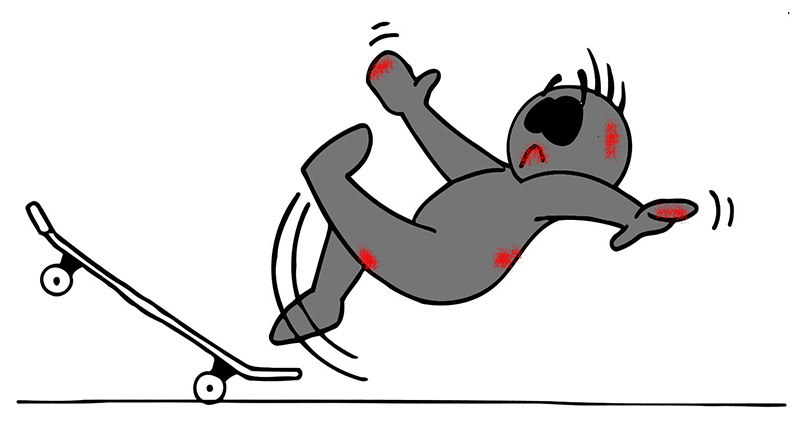
Let's face it, traditional depictions of zombies aren't really THAT menacing. The idea is that they are slow and lumberingly incompetent by themselves but in a massive horde can quickly become a problem— a slow moving problem, but a problem nonetheless. This can go south for moviemakers because the slow movements, imperviousness to damage, lack of awareness when limbs fall off, and tendency to trip, slip, and look silly causes zombies to be a big unintentional source of physical comedy. There is not a single movie that I mentioned above that didn't feature at least one scene where a zombie was flailing around humorously or otherwise used for a visual joke. Zombies are just silly-looking sometimes. Several western depictions of zombies have abandoned the slow moving schtick of the past for the swift-moving predatory "infected" model from "28 Days Later" or "Left 4 Dead." I can't help but think this is due at least slightly to the fact that you can only generate so much tension in a scene where your main antagonist is moving at the speed of smell and in danger of falling down at any given moment.
They're Everywhere
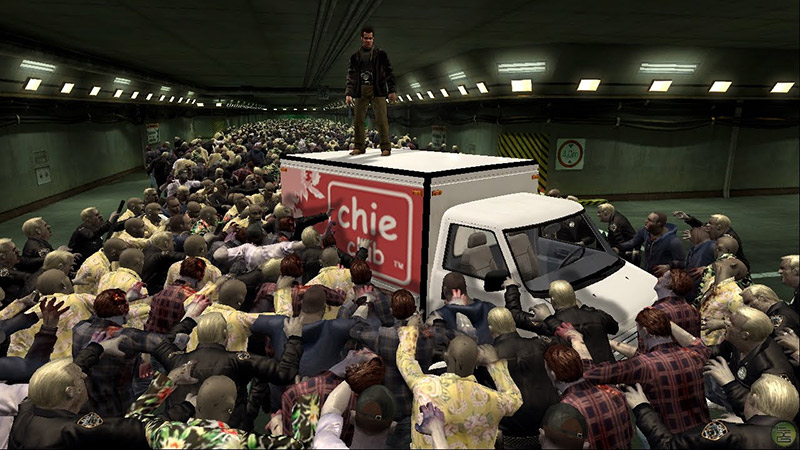
This is definitely a big factor for any filmmaker approaching a zombie movie, Japanese or otherwise. Creators have to spend a bit of time digging around in the barrel of creativity going, "what else have we got?" It can't just be zombies anymore. It has to be zombies with this or zombies with that. Between movies, video games, board games, card games, television shows, podcasts, t-shirts, and anything and everything else, we have over saturated the universe with zombie media. We're approaching a zombie singularity where every movie will either have a zombie in it or a superhero. Even in Japan, which has much less of an infatuation with zombies than the West, the feeling has started to emerge that they are running out of fresh twists on the zombie formula and that's a driving force in leading Japanese filmmakers to continue creating weird and wacky films. Zombies have reached the point where they are so played out that, frankly,
They Don't Mean Anything Anymore
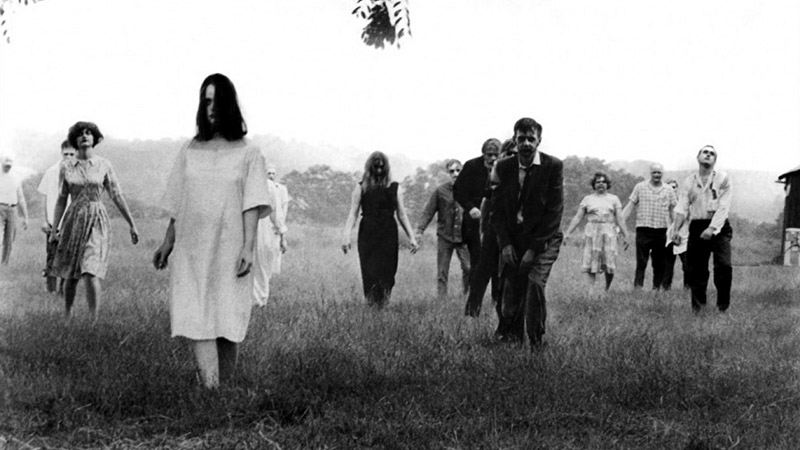
Zombies have worked as a scare in the past, not just by relying on blood and gore, but because they were representative of the perceived social ills and legitimate concerns of the filmmakers. In the same way that the original 1954 "Godzilla" endures because it's a striking nuclear allegory, George Romero's "Dead" films (the movies that for better or for worse started this modern zombie craze) endure because they dealt with issues like government ineptitude and unchecked commercialism. Romero's zombies represented the fear of individuality being wiped out and absorbed into a mass consumer horde—fears that don't resonate with the rather collectivist Japanese population. Zombies also represented the concept of the "other," something that is different from you that swoops in and grows until you are pushed out of your rightful place. This is a very common fear to play on in the West, but something that a largely homogenized society like Japan's didn't readily cling to.
Even the more universal themes that could've made zombies frightening to the Japanese, such as the fear of spreading illnesses or the abuse of nuclear and biological weapons, have now been so watered down in the media that they too have lost their resonance. The iconic imagery of a walking human corpse has been used and reused and recycled and overused and reiterated and distilled until it doesn't actually stand for much of anything any more. Sprint has used them to sell cell phones for goodness sake! A zombie is no longer an icon of fear. A zombie is just a zombie: A disposable rotting mook. If that's all they are, why not throw them into kung-fu movies where filmmakers are always looking for hordes of something or other to have their stars punch their way through? I mean, it's not like they matter—they're just zombies!
Now if you'll excuse me—I have some Japanese zombie movies to catch up on.
